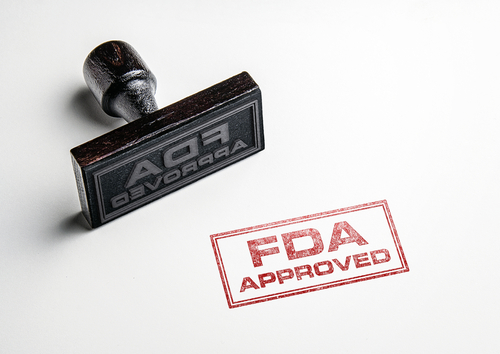FDA Approves Breztri Aerosphere as COPD Maintenance Treatment
Written by |

AstraZeneca‘s Breztri Aerosphere has been approved by the U.S. Food and Drug Administration (FDA) as a maintenance treatment for chronic obstructive pulmonary disease (COPD).
Formerly known as PT010, Breztri Aerosphere is an inhaled therapy with three active components: the long-acting muscarinic antagonist glycopyrronium, the long-acting beta-2 agonist formoterol fumarate, and the corticosteroid budesonide.
“Breztri Aerosphere has demonstrated a strong clinical profile compared with dual-combination therapies and offers a meaningful new treatment option for patients,” Mene Pangalos, executive vice president of biopharmaceuticals R&D at AstraZeneca, said in a press release.
The triple-combination therapy previously was approved in China and Japan to treat COPD .
The FDA’s approval was based on data from the Phase 3 clinical trial ETHOS (NCT02465567), conducted at some 740 sites worldwide. The trial was sponsored by Pearl Therapeutics, which was acquired by AstraZeneca in 2013.
ETHOS enrolled more than 8,500 people with COPD who had experienced at least one moderate-to-severe exacerbation in the year before the trial and had been given at least two inhaled maintenance treatments.
The participants were randomly assigned to treatment for 52 weeks (about a year) with one of two doses of Breztri Aerosphere (with 160 or 320 micrograms of budesonide), or to treatment with Bevespi Aerosphere (glycopyrronium-formoterol fumarate), or Symbicort (budesonide-formoterol fumarate). Bevespi Aerosphere and Symbicort are approved dual-combination COPD therapies, also marketed by AstraZeneca.
The results showed that, at the highest tested dose, Breztri Aerosphere significantly lowered the frequency of exacerbations: by 24% compared with Bevespi Aerosphere, and by 13% compared with Symbicort. The lower dosage of Breztri Aerosphere also outperformed both dual-combination therapies in terms of exacerbation frequency.
“Preventing exacerbations is central to the management of chronic obstructive pulmonary disease,” said Fernando J. Martinez, MD, chief of the division of pulmonary and critical care medicine at Weill Cornell Medicine, and an investigator in the ETHOS trial.
“Even a single exacerbation can have a negative impact on a patient’s lung function and quality of life, and it can increase the risk of death,” Martinez said. “Breztri Aerosphere has demonstrated significant benefits in reducing exacerbations in patients.”
Compared with Bevespi Aerosphere, Breztri Aerosphere reduced the risk of death by 46% in the ETHOS study, a key secondary endpoint.
Pangalos noted that COPD is “the fourth leading cause of death in the US.”
“We look forward to discussing all-cause mortality data from the Breztri Aerosphere ETHOS trial with health authorities,” he said.
The FDA approval also was supported by the results of an earlier Phase 3 clinical trial, called KRONOS (NCT02497001). That study showed that, after 24 weeks of treatment, Breztri Aerosphere reduced exacerbation frequency and improved lung function relative to the dual-combination therapies.
The safety profile of the triple-combination therapy was found in both KRONOS and ETHOS to be similar to that of the dual-combination therapies used for comparison. The most common adverse events were upper respiratory tract infections, dysphonia (also known as hoarseness), and muscle spasms.



